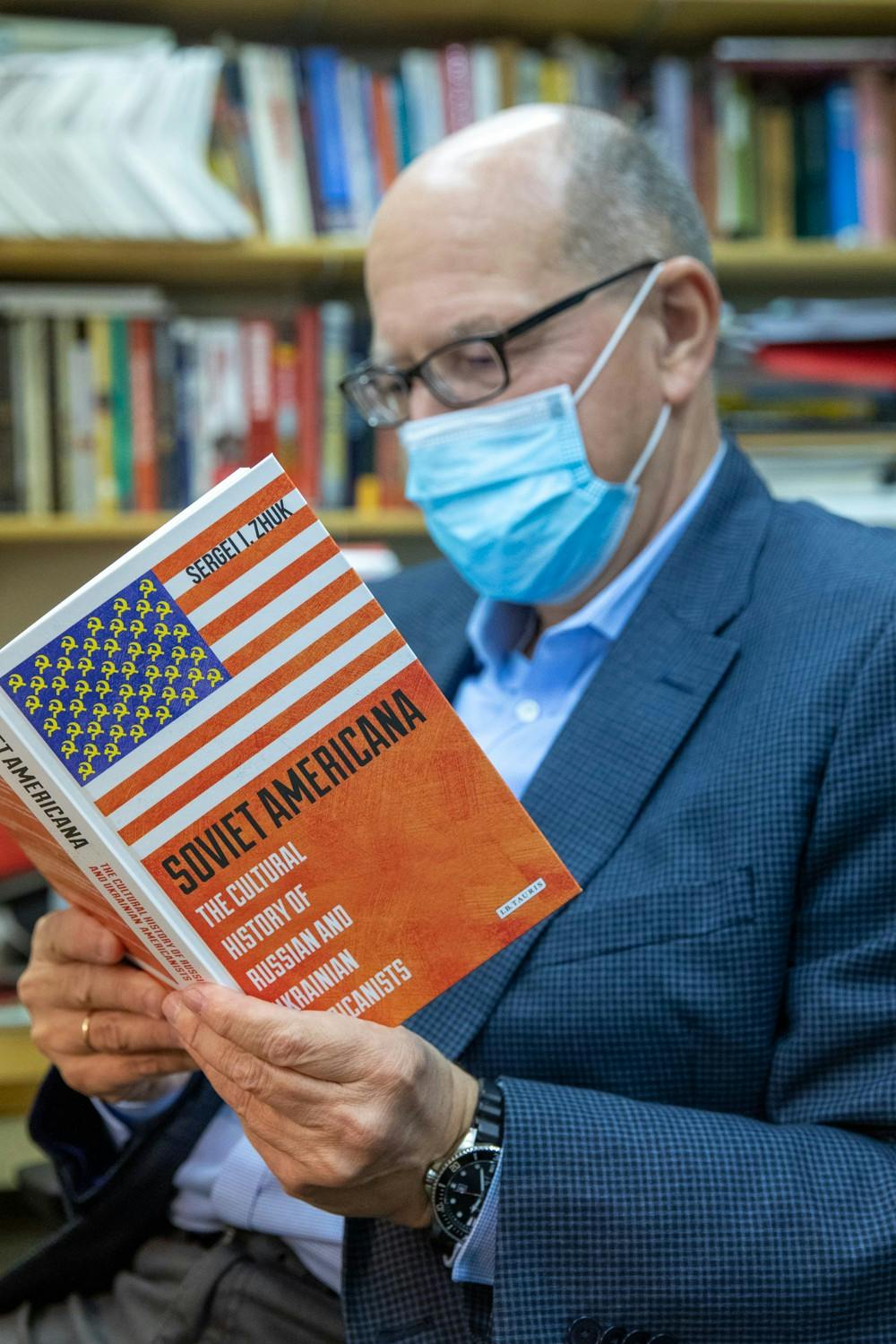When asked who his favorite rock and roll musicians were, he couldn’t decide on one. Paul McCartney, John Lennon and Pink Floyd were the three artists Sergei Zhuk, professor of history at Ball State, listed.
Zhuk received a Fulbright U.S. Scholar Program award in November 2019 to teach at Guangzhou University of Foreign Studies in China. The award includes federal grant money to allow Zhuk to travel and teach in China.
He was offered to teach two types of courses at Guangzhou University, he said. The first course is about colonial America and the second on the “cultural Cold War” and identity in the Soviet Union.
To teach on the “cultural Cold War,” Zhuk said he uses the rise of rock and roll in America to show its influences on the world.
“This material will allow you to first [learn about the] social and cultural history of the United States during the Cold War and expand to international world history,” he said.
The musicians he teaches about are some of his favorites, such as Muddy Waters and The Beatles.
When he was growing up in the Soviet Union, Zhuk’s first exposure to rock and roll was a tape his brother had brought him: “Rubber Soul” by The Beatles. Growing up, he began to listen to “heavier” rock artists, such as Pink Floyd and King Crimson.
Zhuk first applied to teach these classes away from America after some of his Chinese students at Ball State expressed a desire to have him teach in China.
It was a surprise to him that his course was selected to be taught in China, he said. He received an official report from Fulbright in February, but then the COVID-19 pandemic began.
“When COVID-19 hit in March, Fulbright had to cancel the program midstream. They ended up having to send everyone home,” said Justin Miller, director of Sponsored Projects Administration.
His trip now depends on a government decision because of cut academic ties to China under the Trump administration.
“It could be restored,” Zhuk said. “Either President Trump or President Biden, [it] depends — they can restore these relations.”
Miller said the COVID-19 pandemic also was a factor in travel issues for Fulbright scholars.
For Fulbright awards in the 2020-21 academic year, all awards were set to start after Jan. 1 to see if the situation had improved.
Miller said there have been some restrictions in travel and connections between the United States and China, but those restrictions are “highly specific” and tend to occur on a case-by-case basis.
Margaret Lewis, professor of law at Seton Hall, said China’s Fulbrights have been canceled, but there is a way for those award winners to apply for another post.
The Fulbright program started after World War II, Miller said, when Senator J. William Fulbright came up with the idea to propose peace through academic exchange.
“If we were able to take our best and brightest minds and send them throughout the world, and bring the best and brightest minds from around the world and bring them here and exchange ideas, and research and teaching, then that would be a really great step toward peace,” Miller said.
The awards are highly competitive, and to receive one shows expertise in your field, he said. The competition opens in February, and potential applicants can apply for it until September.
Applicants go through a two-step review process. The first step is to have their application reviewed by people in their field of study in their country. The second step includes the application being reviewed overseas, Miller said. When an applicant applies for a Fulbright award, they are applying to teach in a foreign country the following academic year.
Dom Caristi, professor of telecommunications and former Fulbright winner, said the Fulbright awards are “prestigious” because winners “are kind of ambassadors overseas.”
“Their role, of course, is to teach and do research, but it’s more than that. They're going overseas in an effort to improve the understanding between countries,” he said.
His experience with Fulbright, teaching and making connections in Slovenia, was the most rewarding experience he has had in his professional career, he said.
“I will tell you, I did my first Fulbright 35 years ago, and I am still in touch with people from Slovenia,” Caristi said.
Zhuk said he is planning to teach at Ball State next semester in case he is not able to travel.
“Who knows?” Zhuk said. “Federal agencies, federal government — they will decide what to do with us. There’s more than 100 people like me [who] have this situation.”
Contact Charles Melton with comments at cwmelton@bsu.edu or on Twitter @Cmelton144.





